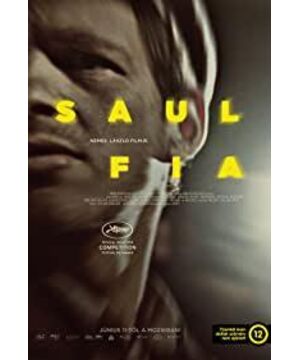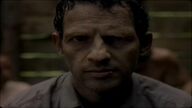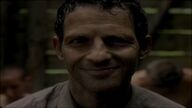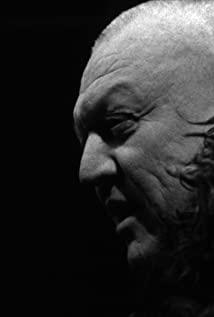related to movies
Motifs, a thesis presented in a form that is nothing more than an extension of the ideology of the film.
But in fact, the motif is much broader than the form.
Ideology covers not only the theme of the movie story, but also the influence of political, era, personal and other factors that exist outside the story.
A motif, "refers to a theme, character, storyline, or pattern of words that appears repeatedly in a literary work as a meaningful thread that unifies the work as a whole, or it may be an image or 'archetype' that, due to its repeated Appears, makes the whole work have a context, and strengthens." This is the same as mixing the motif with the image, the prototype, etc.
The motif can be said to be the core of the theme of a work, everything that happens in the work revolves around the theme, and the motif is the heart of the theme. After the formalism was promoted in the film works of the last century, it was quickly unified and institutionalized, and the same profound definition promoted by film semiotics, in the vertical excavation of the scene scheduling and realistic meaning of the image, etc. Lost the exploration of the meaning of the image itself, too much emphasis on the form and ignoring the emotional power generated by the blank space in the film.
Ideology is defined in the film - it basically covers all aspects of human cognition, and it is very one-sided - the object attached to ideology is different, and the way it is displayed is different. This can be seen from how much we understand a movie.
When it comes to the ideology of movies, there will be multiple influencing factors that restrict the divergence of ideas. Before that, let's understand what ideology is:
Ideology, belonging to the category of philosophy, can be understood as the understanding and cognition of things. It is a kind of perceptual thought about things. It is the sum of concepts, viewpoints, concepts, thoughts, values and other elements. Ideology is not inherent in the human brain, but stems from social existence.
You can experience this on your own.
Son of Saul is a movie that belongs to a motif—a work that starts from a theme and can sum up the entire film. Formalist films are slightly weaker than thematic films, such as "Bath in the Sky" or "Raise the Red Lantern". Many people classify them as "artistic films", which is not true. , Compared with the literary and artistic display of the film, their formal display is stronger. The former is an accurate grasp of the three acts of the story structure, as well as imagery metaphors and emotional impetus, etc. The artificial traces are obvious (this was mentioned in the previous analysis of this film), and the other film has a sense of form. It all stems from the control of the scene scheduling. Although both films try to cover up the artificial nature of the story, to be honest, if the above sense of formality is true, the shock of the film will be greatly reduced.
But they are not completely separated.
Some motif films also have a strong sense of form, and they can be classified as either the former or the latter.
In addition to this, the ideology of the film is also related to both.
The collision between the ideology of the audience of a work (including but not limited to the video medium) and the ideology of the filmmaker will produce one or more new understandings that, in the same film, may have an impact on the film itself There are at least three aspects:
1. The idea of the film author 2. The social environment in which the work itself is located 3. The audience's deep understanding and analysis of the image
In addition, according to different film works, there are many different ideologies that will affect the imagery displayed in the film. In Charlie Kaufman's "New York Synonymy", the inner world and the outer world of the protagonist Get through and become the audience in the script to watch your life (from what the screenwriter wants the protagonist to do to what the screenwriter wants the protagonist to see the screenwriter do) - just like we mentioned "God's Perspective" It's easy to get confused when the concept is presented in this film.
The collision of ideologies will make many works with the same motif, and their appearance will be completely different. Anti-war films include dramas such as "The Grand Budapest Hotel", "Apocalypse Now" and "The Deer Hunter", and there will also be "The Grand Budapest Hotel". Rwanda Hotel", "Blood Diamond" and other personal heroism. Even works that also reflect Nazi brutality in World War II, "The Pianist" and "Schindler's List," and "The Boy in the Striped Pyjamas" are different.
In this "Son of Sol", the cruelty and blood of the war have been vividly displayed by the previous works, and there is almost no new angle to shoot the anti-war theme. Regarding the film of personal salvation, we both There are "Saving Private Ryan", "Schindler's List", and even works like "Minefield" already exist. No matter who the warring parties are, they have enough reflection on the war.
So what is the difference between Son of Saul and these works?
He is neither a vassal of the set of rules of formalism, nor a supporter of multiple ideologies. What makes this film stand out is that it does not dig deep into any angle of the war.
people, survival, motivation
Watching such a very depressing film, I think the biggest enemy is probably the audience themselves. The dark atmosphere and cramped perspective of "Ignorance" is a key for us to experience the mental state of the mentally ill, and it opens the door for us to pass through the patient's heart.
"Son of Sol" goes a step further on this basis. It is not surprising that the use of scene scheduling to create emotions is not surprising. He has become the subtext of the film by us. Then in this film, the subtext of the film has become the protagonist, promoting the mother The progression of the theme—the motif is war.
Whether it is the limitation of the audience's perspective or the unhurried narrative rhythm, the atmosphere brought by the film is just like the background defocus processing about the disappearance of memory in another film "Warm and Containing Light". To a certain extent, the distance between the audience and the characters is narrowed. The depressing feeling brought about by the film is almost equivalent to the fatal sense of despair brought about by Dunkirk. So far, I have not found an anti-war film that handles it in the same way.
There is no deliberate sarcasm of war, and no personal emotion. Even the finale is not as impressive as the long shot at the end of "The Boy in the Striped Pyjamas." He made me feel a strange feeling, this feeling It is the unfamiliarity of the film's expression and the excavation of the theme. The general motif movie will emphasize the importance of the motif, and then there will be a stage of motif interpretation and verification. With the opening and placement of the climax, the emotion will also reach its climax.
As a film with a pure motif, "Son of Sol" is not a good film, but from the perspective of realism, the "sense of powerlessness" he shows is indeed in line with the complex and complex nature of the human species. The changeable attitude towards things is not only the difference in the way of handling the scene, but also the analysis and interpretation of the complexity of human nature. But in the end, it can't avoid becoming a niche, losing the shell of emotion assimilating the audience, the film is necessarily boring, but it does provide us with a thinking angle - how to deal with the old themes and the old in different aspects. Stories are rediscovered to create new understandings.
Therefore, even if it is a movie with a motif, it does not all emphasize the theme. Just like "Three Billboards" does not emphasize the culprit, the appearance of this type of film belongs to a new era, and it may be difficult for everyone to Accept, people are used to being a hero rather than a mere mortal; used to being the focus rather than a crowded wildflower; used to being the dominant rather than the underdog... So far, few people would be willing to be the pure and ordinary Pay the bill, but ironically, most people are ordinary people.
If you let me imagine, I imagine that movies like "Son of Thor" may move closer to "no theme" in the future, more inclined to stream of consciousness and realism, and no theme is not really no theme , but the theme is only the background or clues of the movie, not the main helmsman who manipulates the ideology of the movie. Movies like "Blade Runner" emphasize exploration and reflection. In addition to the changes in time, "Dunkirk" also has In the practice of extracting meaning from meaninglessness, human beings remove the meaning itself, and only life is left, and life is the meaning in meaningless life.
All meanings are attached by human beings, whether it is war, money, desire, or recreational places such as famous buildings, amusement parks, etc., they are cared for and plundered because of some people or some things, if human intervention is removed, Then everything is meaningless.
Having said that, anyone with a heart can probably understand why Sol has such a strong desire to protect another person (maybe or not his son). Burying a dead person is pointless for others, but it is for Thor, and the only thing that matters in war (which may have something to do with some of the trauma he has suffered). This is not an extremely strong desire for ordinary people, but a dispensable behavior, so it is difficult for most audiences to experience subjective emotions.
Son of Saul is not a very good work, but a work that can bring people to think will definitely not be a failure. Resting in our own world, at that time, we may recall the meaningless actions of the protagonist, and we will gradually realize what the meaning of this meaninglessness is.
View more about Son of Saul reviews










